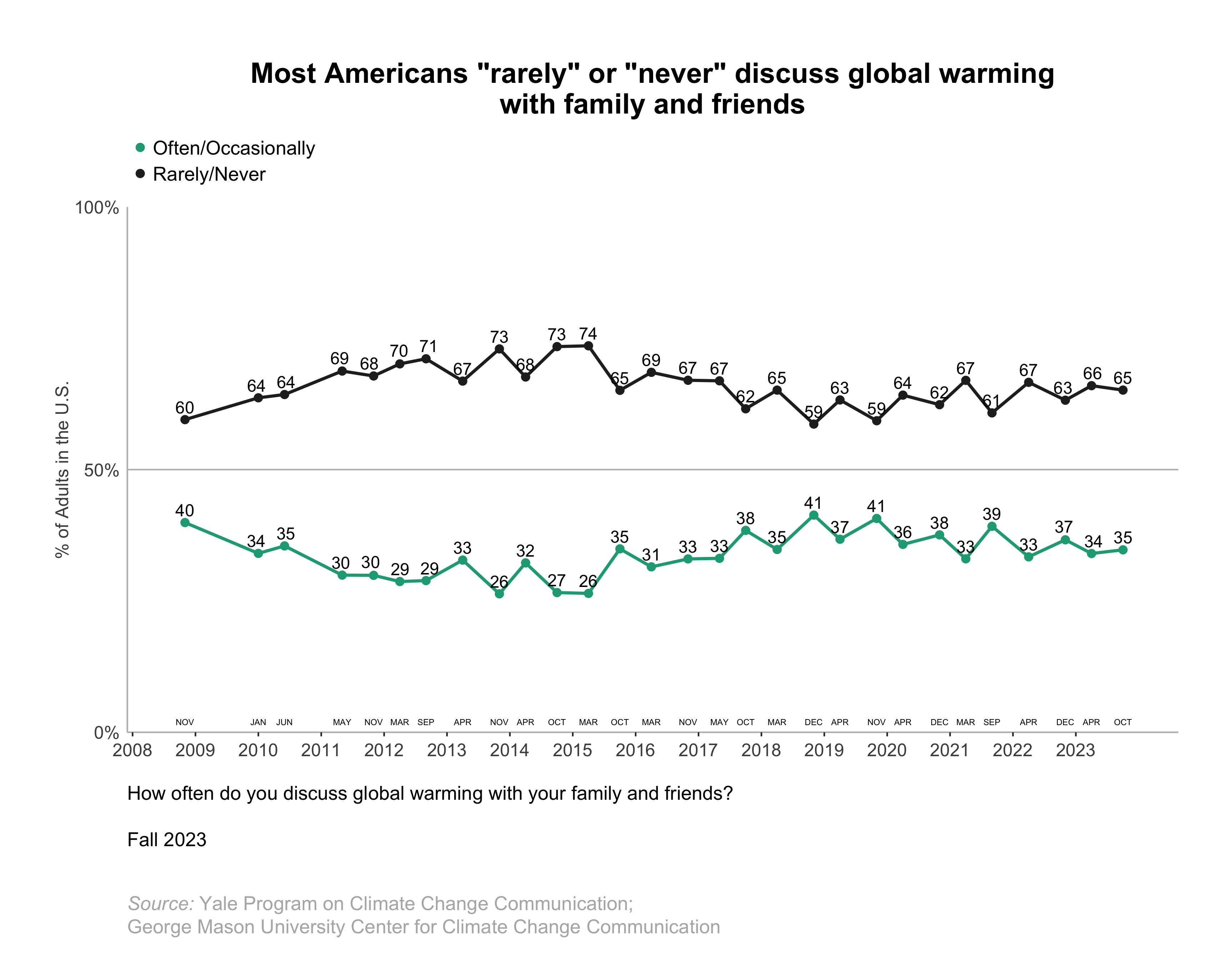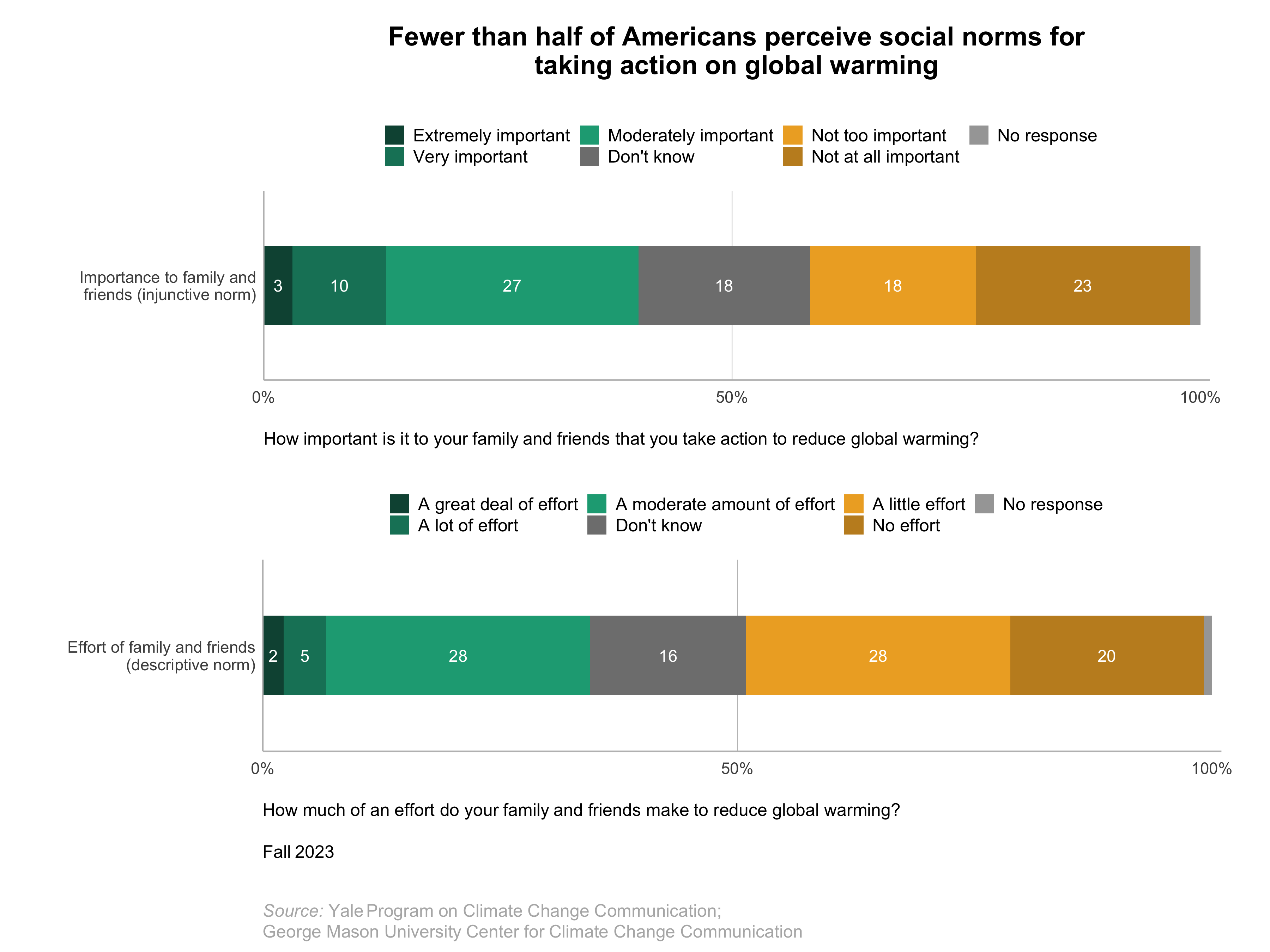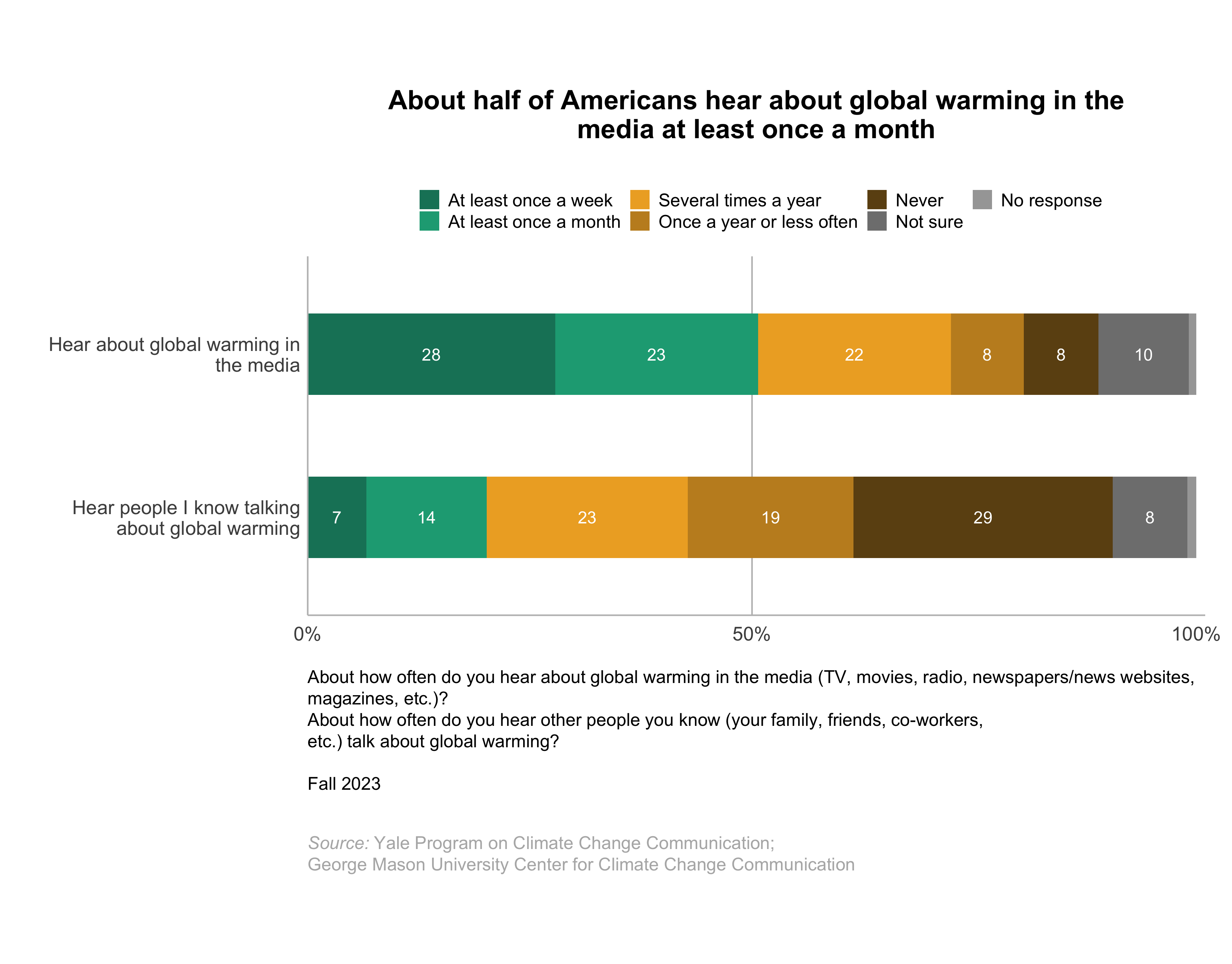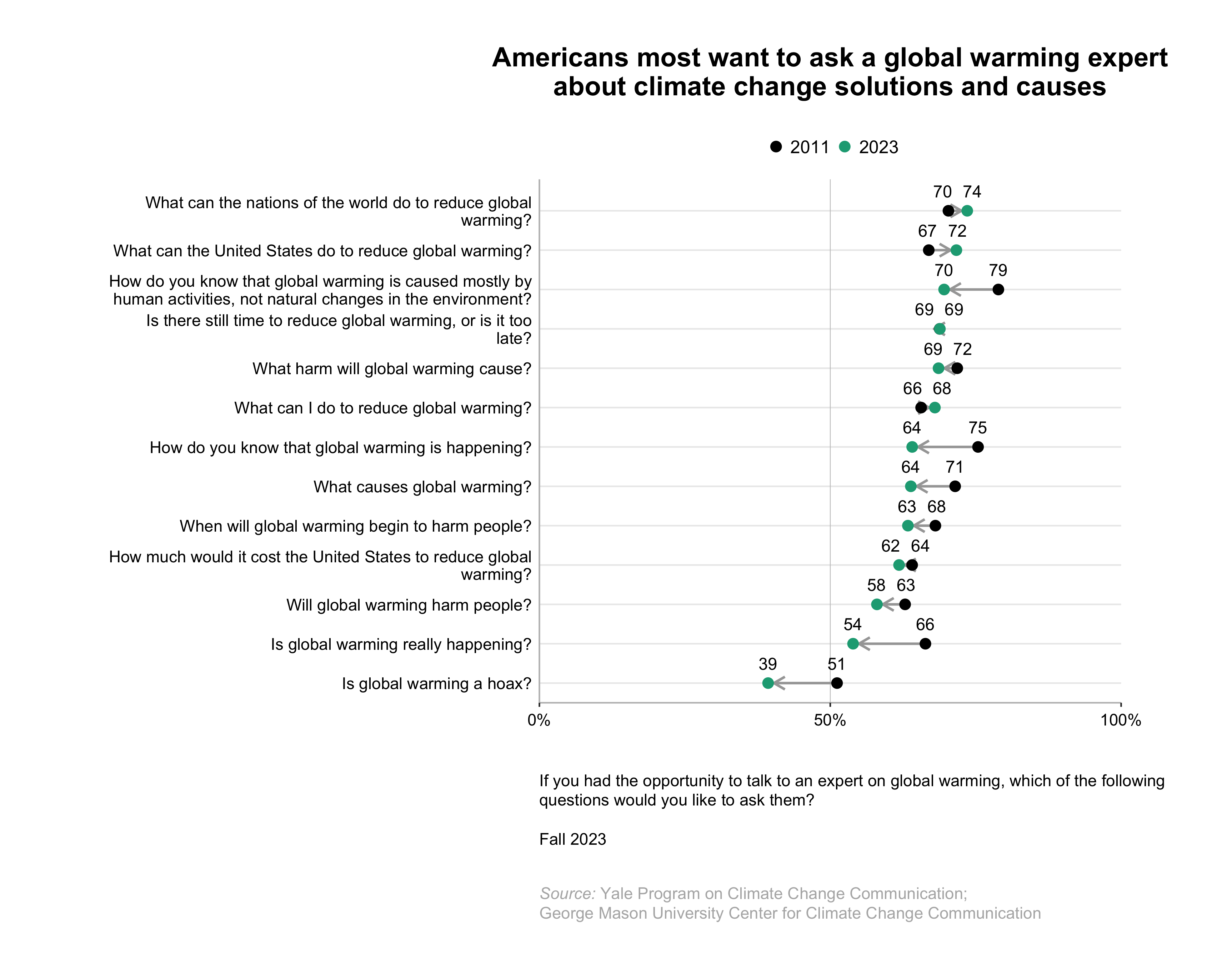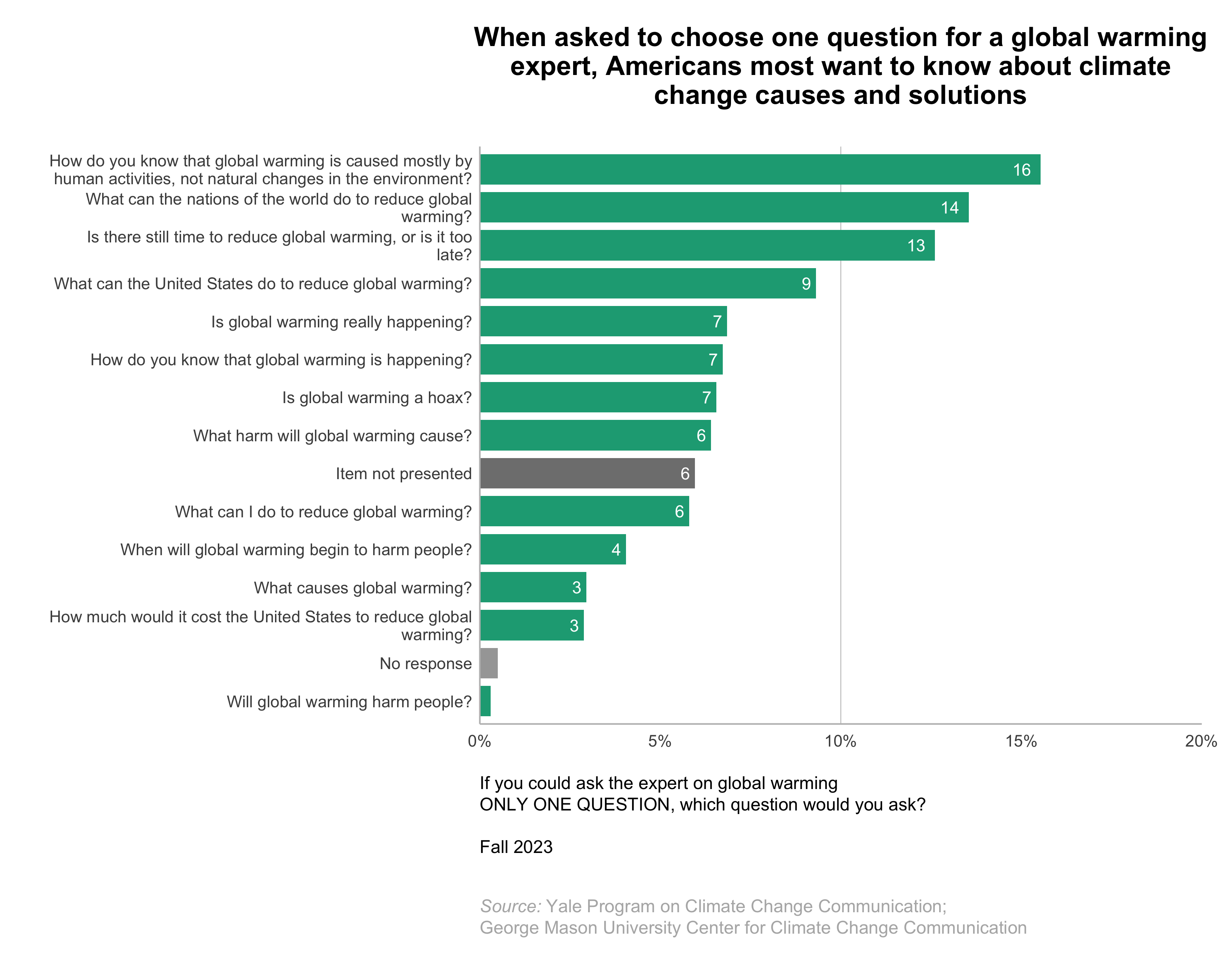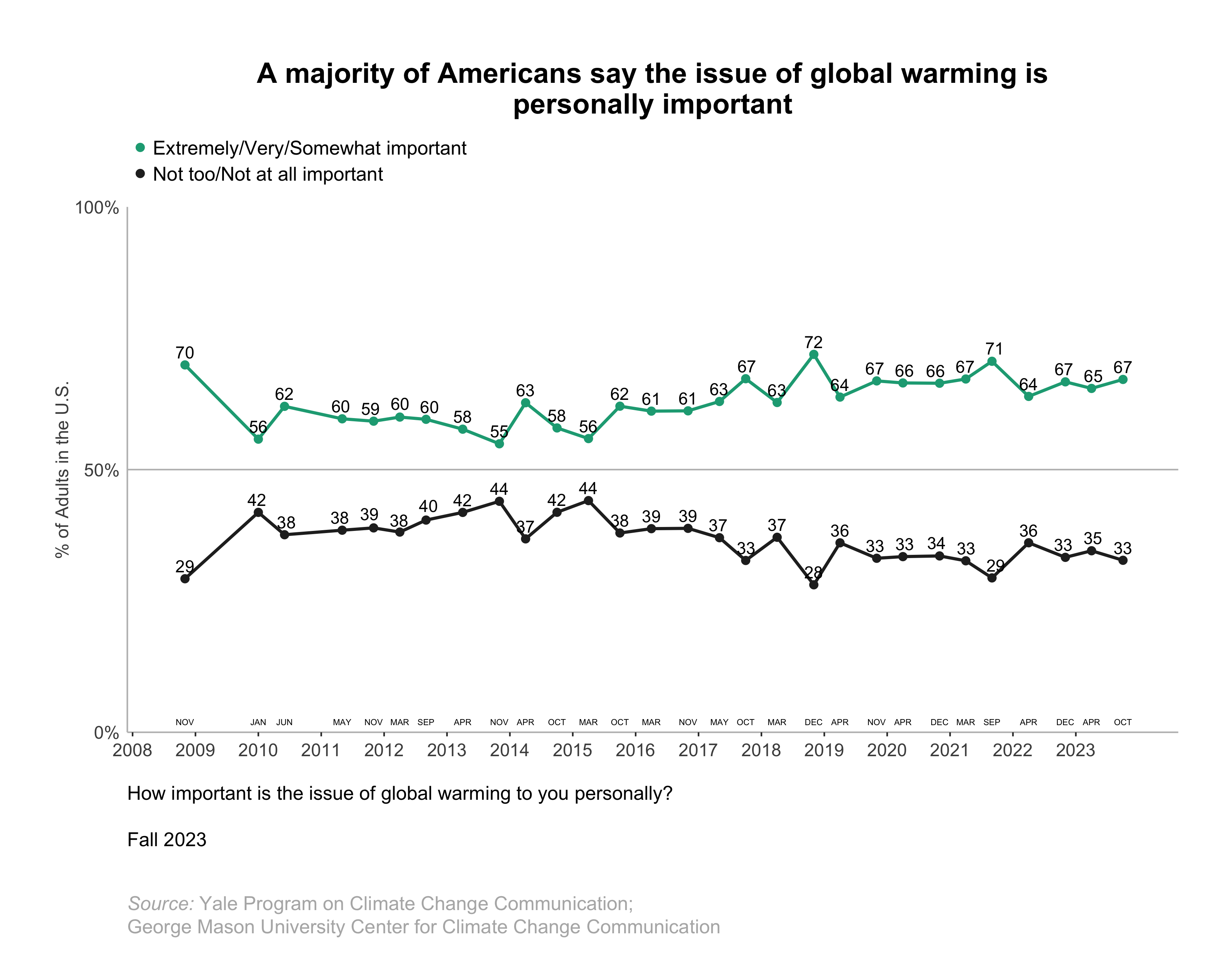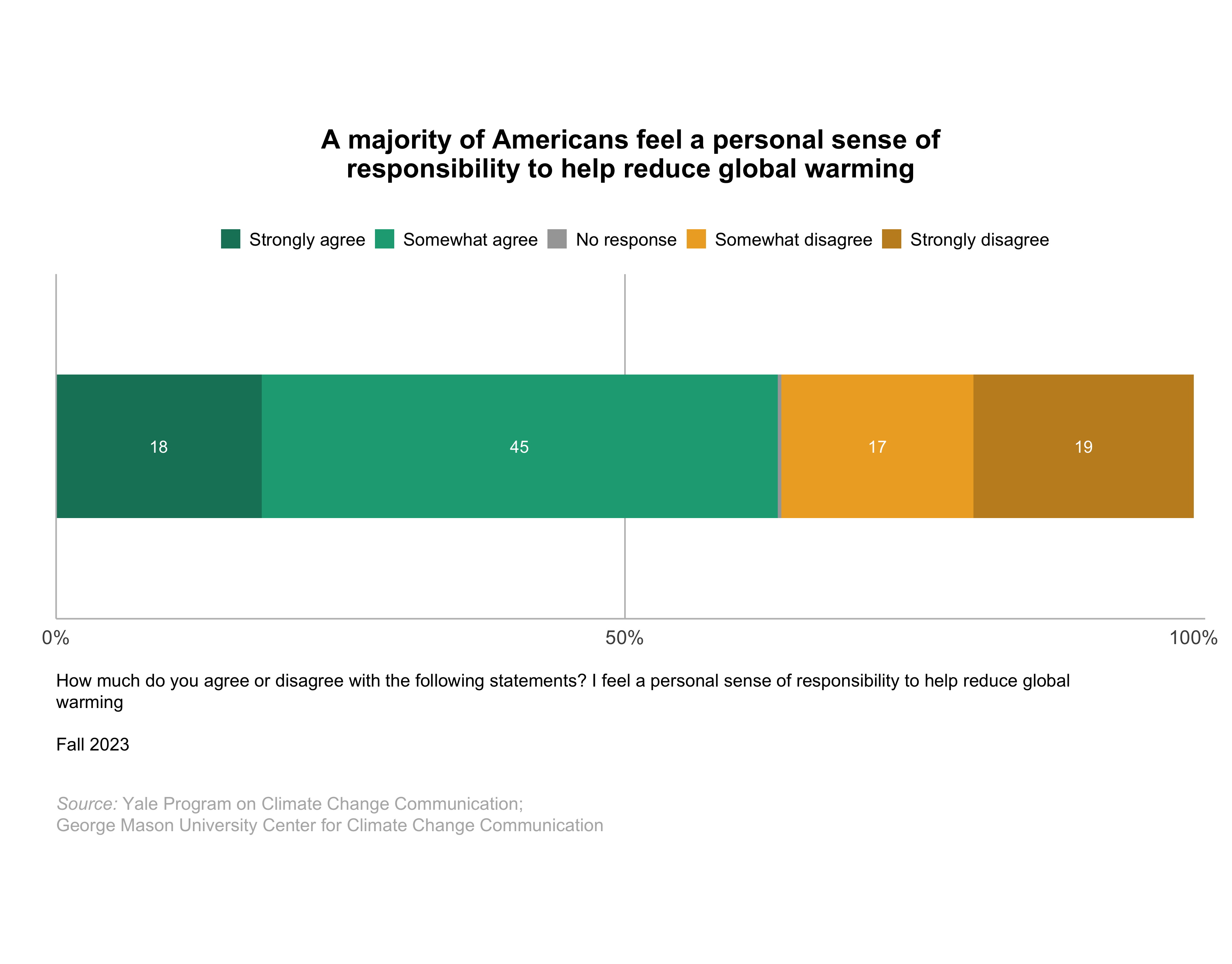Report · Jan 11, 2024
Climate Change in the American Mind: Beliefs & Attitudes, Fall 2023
By Anthony Leiserowitz, Edward Maibach, Seth Rosenthal, John Kotcher, Emily Goddard, Jennifer Carman, Matthew Ballew, Marija Verner, Jennifer Marlon, Sanguk Lee, Teresa Myers, Matthew Goldberg, Nicholas Badullovich and Kathryn Thier
Filed under: Beliefs & Attitudes and Climate Impacts
4. Personal and Social Engagement with Global Warming
4.1. Most Americans “rarely” or “never” discuss global warming with family and friends.
Most Americans (65%) say they either “rarely” (32%) or “never” (33%) discuss global warming with family and friends (refer to data tables, p. 55), while 35% say they discuss global warming either “occasionally” (30%) or “often” (5%).
4.2. Fewer than half of Americans perceive social norms for taking action on global warming.
Social science research has shown that two types of social norms can have a powerful influence on people’s behavior: injunctive norms (the belief that friends and family expect you to behave in a given way) and descriptive norms (the belief that friends and family are themselves behaving in that way).Schultz, P. W., Nolan, J. M., Cialdini, R. B., Goldstein, N. J., & Griskevicius, V. (2007). The constructive, destructive, and reconstructive power of social norms. Psychological Science, 18(5), 429-434. doi:10.1111/j.1467-9280.2007.01917.x
Four in ten Americans (40%) perceive an injunctive norm, saying it is either “extremely” (3%), “very” (10%), or “moderately” (27%) important to their family and friends that they take action to reduce global warming. Similarly, 35% perceive a descriptive norm, saying their family and friends make either “a great deal of effort” (2%), “a lot of effort” (5%), or “a moderate amount of effort” (28%) to reduce global warming.
4.3. About half of Americans hear about global warming in the media at least once a month; fewer hear people they know talking about it at least once a month.
About half of Americans (51%) say they hear about global warming in the media once a month or more often, while 38% say they hear about global warming in the media several times a year or less often, including 8% who say they never hear about global warming in the media.
In contrast, only one in five Americans (20%) say they hear people they know talk about global warming once a month or more often, while 70% say they hear people they know talk about it several times a year or less often, including 29% who say they never hear people they know talk about global warming.
4.4. Americans most want to ask a global warming expert about climate change solutions and causes.
About seven in ten or more Americans say that if they had the opportunity to talk to an expert on global warming, they would like to ask,Respondents were presented 13 questions they could potentially ask and were prompted to respond either “yes” or “no” to each one. The identical set of questions was asked in the May 2011 wave of the Climate Change in the American Mind survey. “what can the nations of the world do to reduce global warming?” (74%), “what can the United States do to reduce global warming?” (72%), “how do you know that global warming is caused mostly by human activities, not natural changes in the environment (70%), and “is there still time to reduce global warming, or is it too late?” (69%).
These top responses contrast somewhat with the responses given in 2011 (refer to data tables, pp. 60 – 72), in which the top response, “how do you know global warming is caused mostly by human activities, not natural changes in the environment?” (79%) was followed by other basic knowledge questions, including “how do you know that global warming is happening?” (75%), “what harm will global warming cause?” (72%), and “what causes global warming?” (71%).
4.5. When asked to choose one question for a global warming expert, Americans most want to know about climate change causes and solutions.
After responding to each of the 13 questions they could potentially ask an expert on global warming, respondents were shown the list of questions to which they had answered “yes,” and were asked the following question about them: “If you could ask the expert on global warming ONLY ONE QUESTION, which question would you ask?”This is identical to the procedure used in the May 2011 Climate Change in the American Mind survey.
Using this method, the top single question Americans would ask an expert on global warming is “how do you know that global warming is caused by human activities, not natural changes in the environment?” (16%), followed by “what can the nations of the world do to reduce global warming?” (14%), “is there still time to reduce global warming, or is it too late?” (13%), and “what can the United States do to reduce global warming?” (9%).
These are similar to the top responses given to this question in May 2011 (refer to data tables, p. 73), which included “how do you know that global warming is caused by human activities, not natural changes in the environment?” (16%), “how do you know that global warming is happening?” (10%), “is there still time to reduce global warming, or is it too late?” (10%), and “what can the nations of the world do to reduce global warming?” (10%).
4.6. A majority of Americans say the issue of global warming is personally important.
Two in three Americans (67%) say the issue of global warming is either “extremely” (14%), “very” (23%), or “somewhat” (30%) important to them personally (refer to data tables, p. 77). One in three (33%) say global warming is either “not too” (13%) or “not at all” (20%) personally important.
4.7. A majority of Americans feel a personal sense of responsibility to help reduce global warming.
A majority of Americans (63%) agree either “strongly” (18%) or “somewhat” (45%) that they feel a personal sense of responsibility to help reduce global warming.
